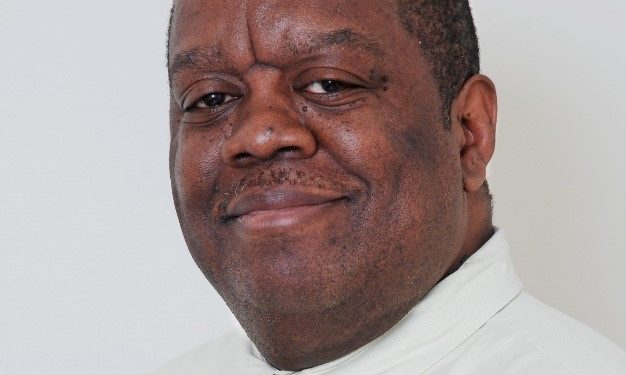Guest blog by David Frederick, Principal at Marcus Bishop Associates
David is a new member of the Voice At The Table Community, drawn in by our Tuesday@10 Series, which has been tailored to keep everyone motivated and engaged in exceptional circumstances – covering topics designed to make the best of yourself, including how to improve your performance during remote working, leading a team from your kitchen table and building stronger mental fitness during these difficult times.
Leading a team of accountants, he’s consciously structured his first Tuesday virtual meeting around the Webinar, ensuring it ends promptly at 9.55am so that he can break off to get his weekly fix.
On the series so far, David said, “It gives you a chance to focus on areas you don’t normally look at as an accountant.
“It’s about drawing the best out of people and helping my team to grow.”
He’s found the tips and suggestions shared in the Webinars really valuable in a situation where there was little time for forward planning.
He said, “No-one trains you to work or manage a team from home, so any props that you get along the way that can help the process are useful.”
The enforced Working From Home (WFH) experience has given David insight, from which he’s identified five fundamental principles:
- Establish clear objectives and eliminate any form of procrastination;
- Allow for flexibility and be ready to change as events unfold;
- Recognise there will be greater demand upon your non-technical skills;
- Communication is a key feature;
- Earlier technological investment and engagement provides a helpful launch pad.
Here’s how he came to these conclusions:

Only a few months ago, Marcus Bishop Associates and its small team of accountants were working from our picturesque location inside Kingswood House in south London. Our pre-COVID-19 place for conducting business is a Grade II listed building, colloquially known as the Bovril Castle. It was formerly the home of John Lawson Johnson the inventor of Bovril.
On Thursday 19th March, we were informed that our building would be closing the next day until further notice. Prior to this sudden bombshell, WFH had only been seriously trialled by myself, due to health reasons. It was not a familiar mode of working to the team, but here was our opportunity to try it.
The weekend before WFH began, my thought was, “How on earth am I going to manage this new situation?”
I recall in our farewell team session that I had advised them we’d have a team conference call on Monday at 9:30am. At the time, its content was wholly unknown. Fortunately, over the weekend, a simple tripartite framework for the new uncertainty was hatched.
- We have to navigate whatever comes our way to get through to the other side and whatever, lay on the other side was not material;
- Our clients are going to need our real service, cash flow management, advisory services and above all business support to help them through; and
- The team is going to need greater support if we are to achieve the above.
Suffice to say, I was going to need a miracle or something to juggle these three balls simultaneously.
One word was ever present the whole weekend, “communication”. So I placed it at the heart of our planning to overcome this period of uncertainty. There was no time for procrastination. I set out a three-part plan:
- Communicate with the team. I planned to hold daily video conference calls with the team at 9:30, 13:30 and 17:30. Perfect, exactly four hours apart;
- Communicate with our clients. I planned client calls to ascertain their business outlook and how we could help them. Later, as news unfolded we had to communicate regular updates to our clients. It is important to ensure clients know and feel that you are there for them in these times;
- Communicate with our small business suppliers. I planned to call these suppliers for their business update and share information where necessary.
How was I going to get any work done, with all these new pastoral care services now in the mix? Fortunately, after the shock, surprise and novelty of home working, there was a realignment to a new business in uncertain times.
The realignment was not perfect but where does perfection exist? The lack of perfection was not material to affect our client service continuity. In fact we were still winning new work! I recognise our fortunate position, because the experience has been more traumatic and painful for many others.
Week one coincided with the aftermath of the Chancellor’s first speech, where he announced the first tranche of business support. This was the most demanding week for all of us. We were adjusting to our new modus operandi plus this Noah-style flood of telephone calls.
Since that first week, the team has adapted like a duck to water. This is a great testament to everyone. However, the team members fortunately are free of many of life’s other challenges, such as parental or carers’ responsibilities.
The team’s transition was facilitated by our daily video conference sessions with a rotation of individuals leading the session. In addition, a WFH survey helped gauge the team’s views and identify areas for improvement.
Our daily closedown session at 17:30 has seen the introduction of fun and light hearted activities to shift the focus away from work and targets.
Working from home has produced some positive outcomes for Marcus Bishop Associates:
- It marked the end of clients submitting physical paper records to us; except in a limited number of cases determined by law. Document transfer via our portal keeps everyone safe and not exposed to any viruses!
- Clients previously reluctant to use technology had miraculously shifted. Again, adversity was a driver for change and a killer of reluctance!
- Face-to-face meetings can now be reserved for only those essential business engagements given our successful use of technology.
We’ll embrace working from home as part of our life-work balance but the team has suggested not as a permanent feature.



